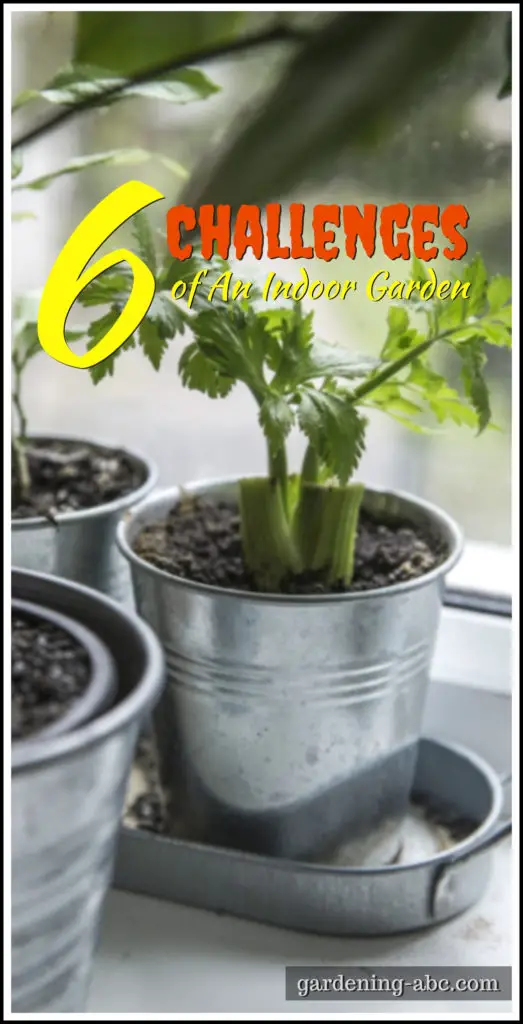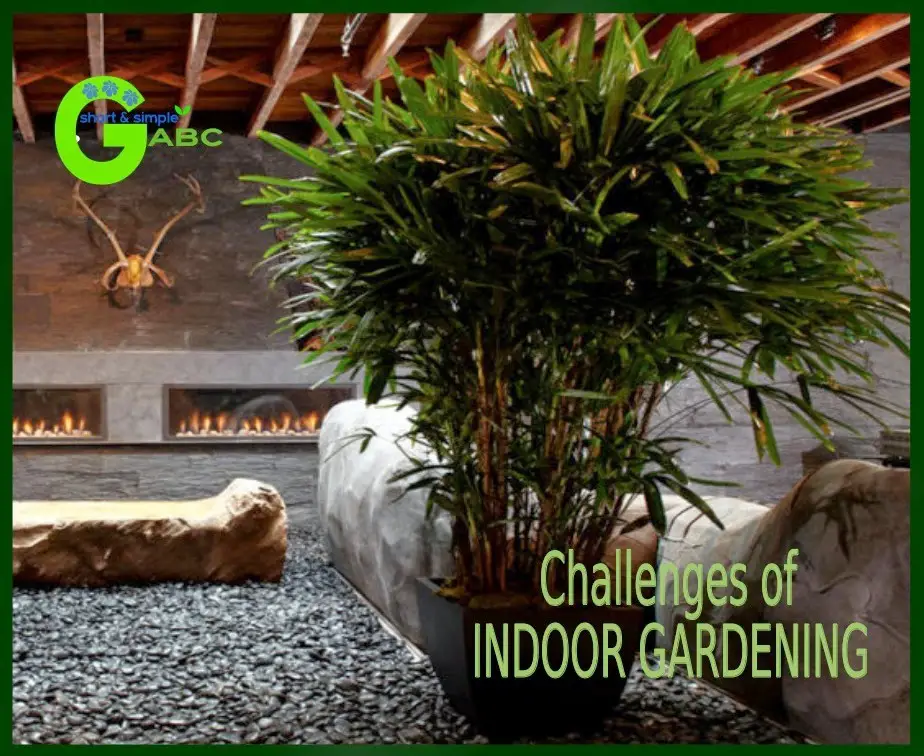We use affiliate links to run our site. When you buy through links on our site, we may earn an affiliate commission, without any added cost to you. Learn more
Generally, people don’t prefer growing plants inside their houses but sometimes that is the only choice we have got. Like every other thing in the world Indoor gardening has its share of pros and cons.
Though there is no doubt that pros outnumbered the cons there are some points we need to keep in mind before plunging into this kind of gardening.
This article gives you a brief about some of the challenges faced by the gardeners while planting Indoor. Knowing about these will definitely give you an extra advantage over others.
So here is a list of top six indoor gardening challenges:

Lack of sunlight:
There is a minimum requirement of light for every plant, lack of which can seriously damage its health. Not every person’s apartment or house is blessed with enough sunlight. Sometimes it can resemble like a cave.
The solution? You need to provide artificial lights to the plants so that they can continue their photosynthesis. A small glow light which somehow resembles sunlight will do just fine. Also, there are plants which do well in very low lights. You can always try your hands on them.
Moisture and Humidity issues:
Requirement of humidity varies from plant to plant. Some appliances like a heater or air conditioner can change the humidity level drastically. This can result in a poor survival rate of the plant.
One of the ways to solve this issue is to group your plants according to their likings and use a humidifier to provide necessary moisture. Also one of the cheapest ways to provide humidity is to spray the leaves of the plants with water once or twice in a day.
Fertility of the soil:
In order to increase the growth and the yield of the plant people add too much of fertilizers in the soil. This can do more harm than good. If you are buying the transplants from nursery ask for proper guidance in terms of fertilizing the soil.
Adding compost with the soil can be a good idea rather than going for chemical fertilizers. You will find more about composting in this article.
Watering issues:
If you are new to indoor gardening this might sting. Watering is totally different inside your house
Make sure your container has drainage holes. Adding small sized pebbles inside the containers before adding soil might be the single best thing you can do to improve the watering of your plant.
Just remember what seems absolutely perfect in the backyard might go horribly wrong inside the house.
Infections:
Generally speaking, indoor gardening is much more susceptible to much more bacterial and fungal diseases than outdoor gardening. You need to be more observant and quick to react.
Due to lack of air flow and natural sunlight, the soil and plants become prone to various diseases. Use organic pest controlling techniques to solve those issues.
Pet Problems:
If you have pets in your house there will be some sort of problem. A cat, in particular, has a craving for leafy greens.
One of the best ways to stop your pets apart from using protective shields around the plants would be to grow some form of grass also. It will more or less divert your pets to them rather than to your hard-toiled vegetables.
Also select your plants carefully. You should not grow any plants which are poisonous to your pet.
Share your indoor gardening experiences. What kind of problems have you faced? How did you overcome them? If you like the article, share with others.
Amazon and the Amazon logo are trademarks of Amazon.com, Inc, or its affiliates.

If you should be opting for finest contents like me, just visit this blog site daily because it provides the feature contents, thanks.The Tree Center
I would like to say that this blog really convinced me, you give me best information! Thanks, very good post.
Software Solutions in Indore
Keep Posting:)